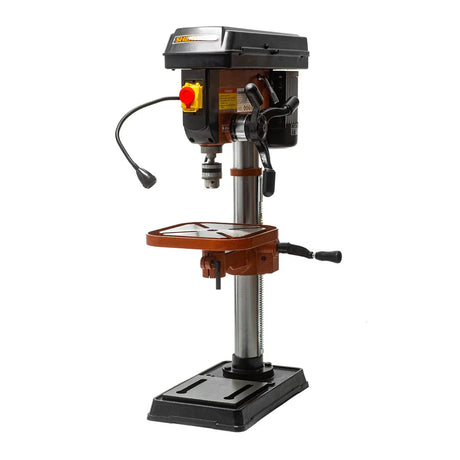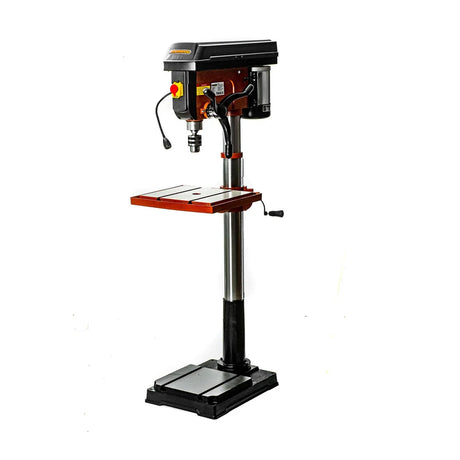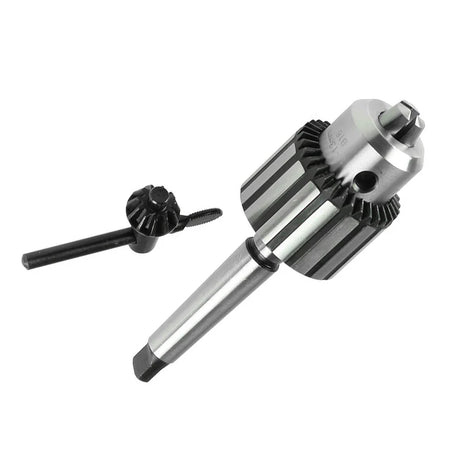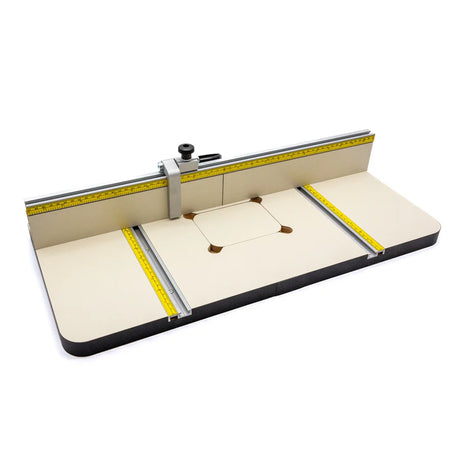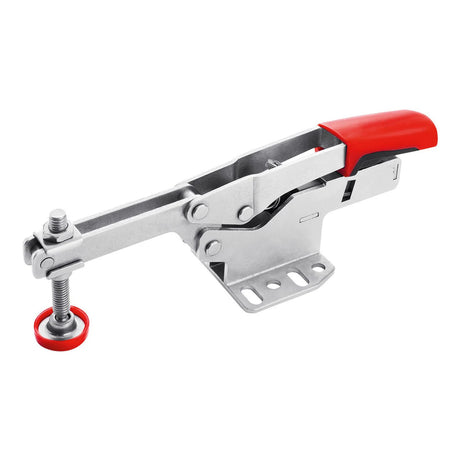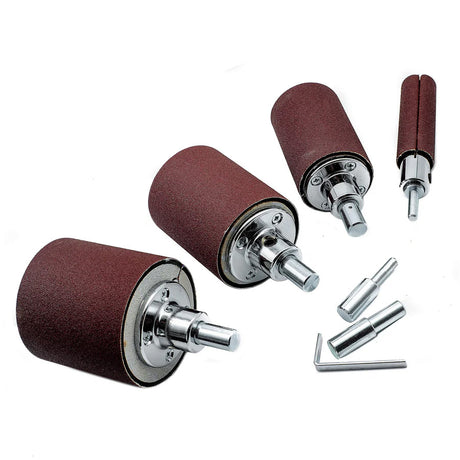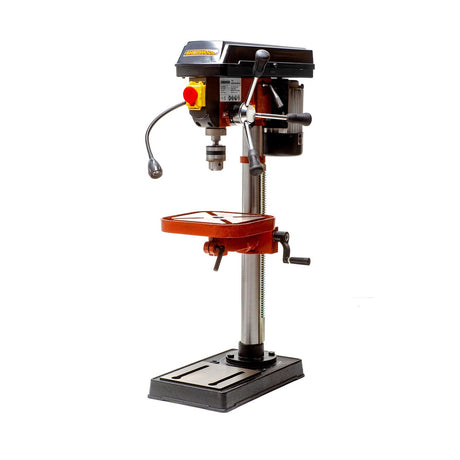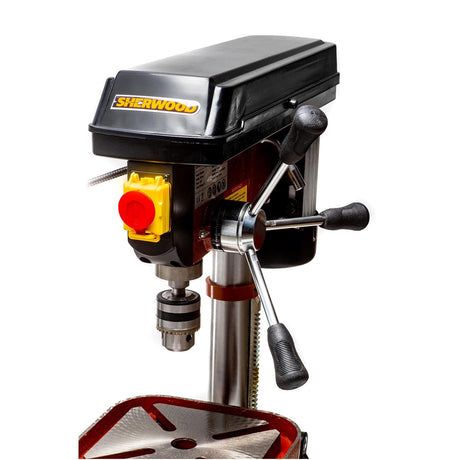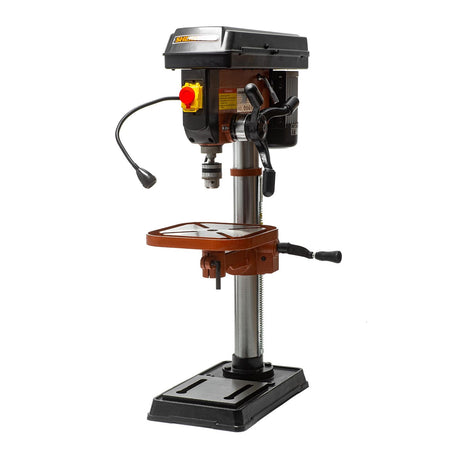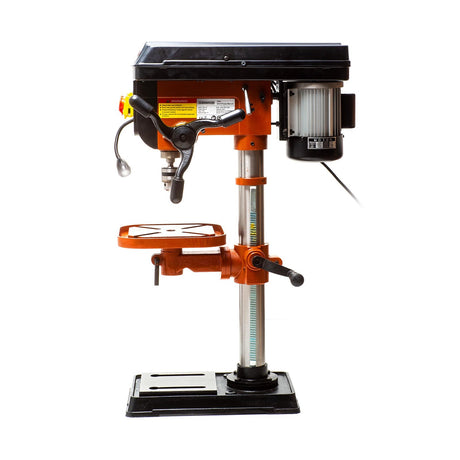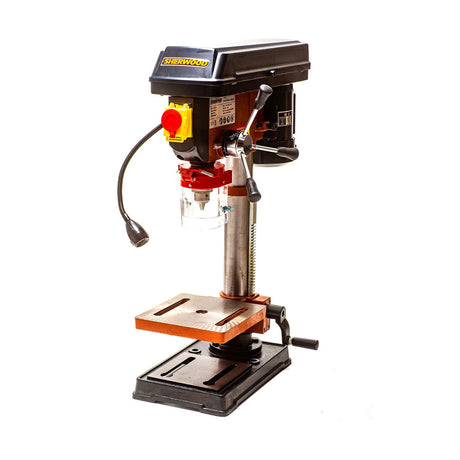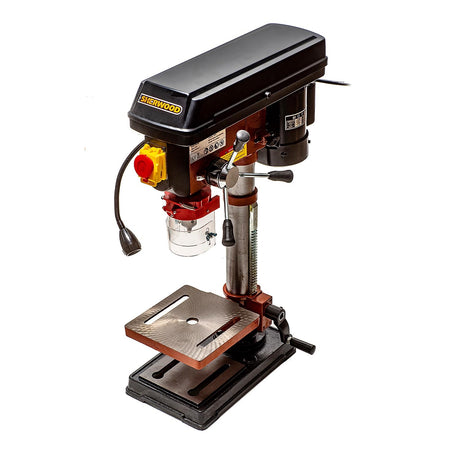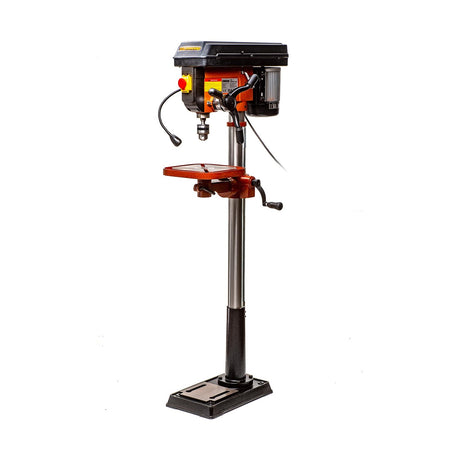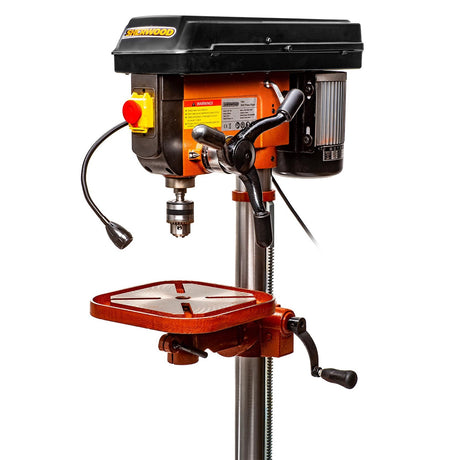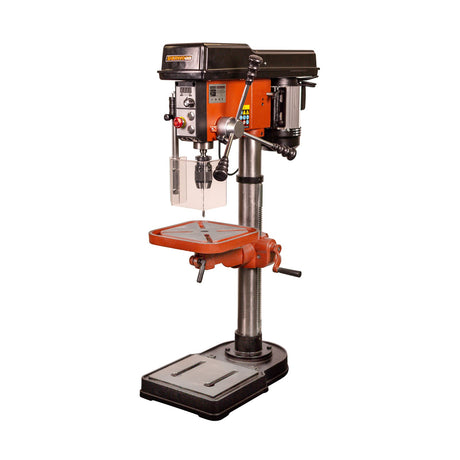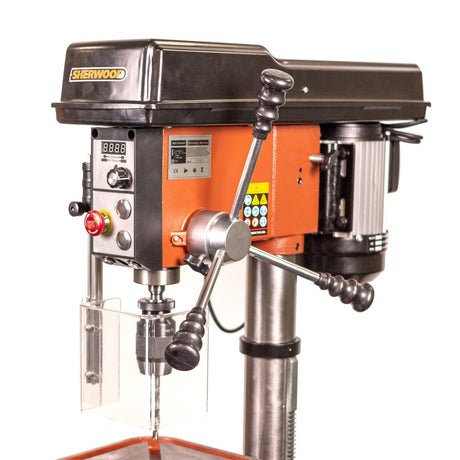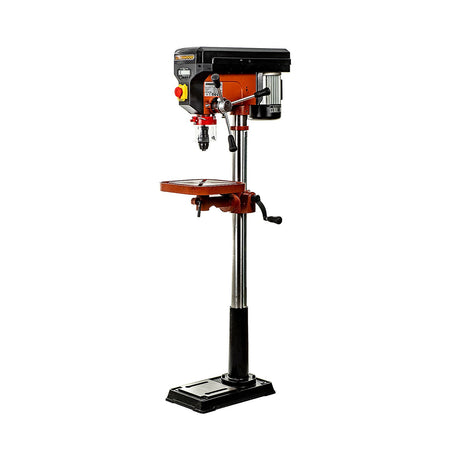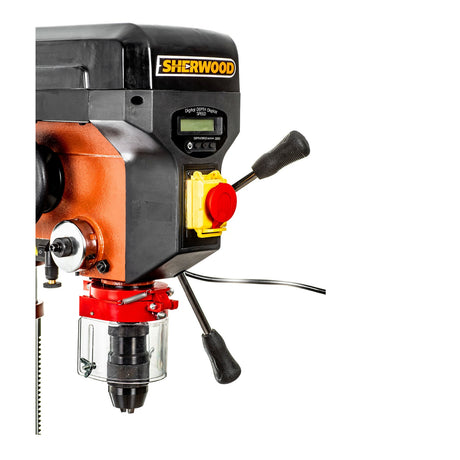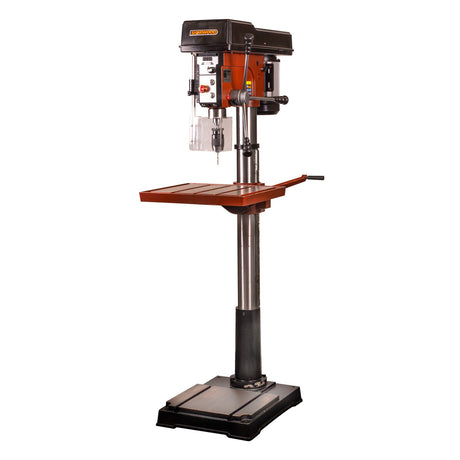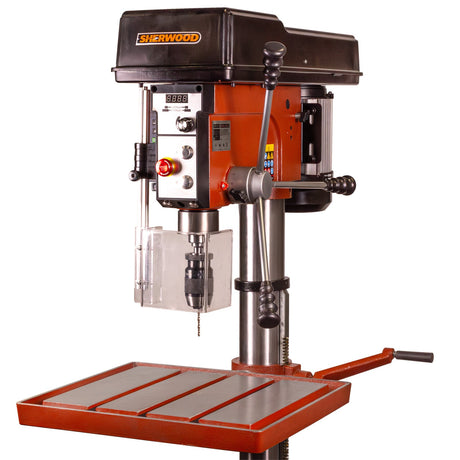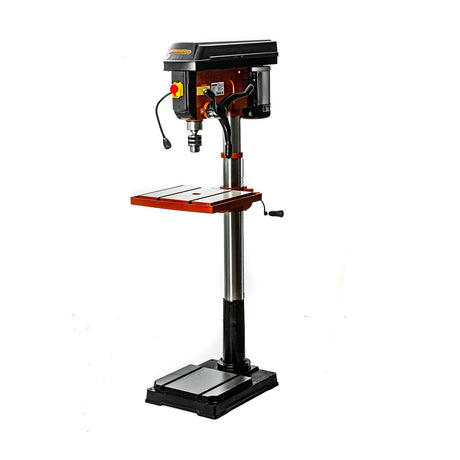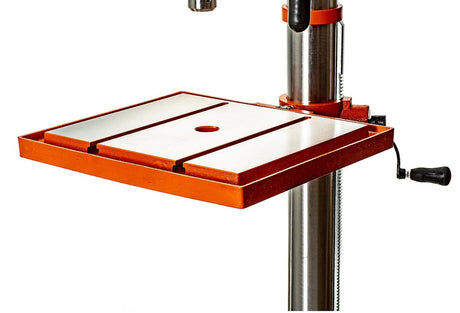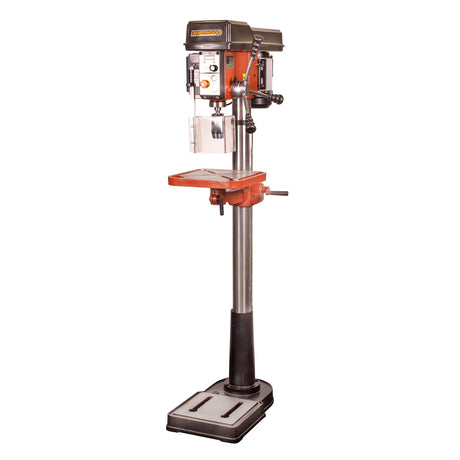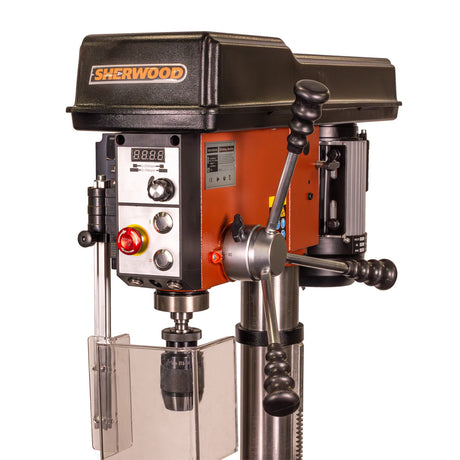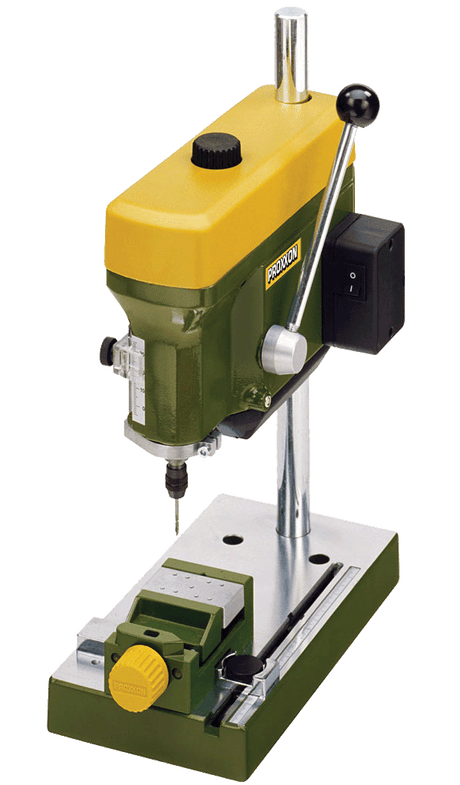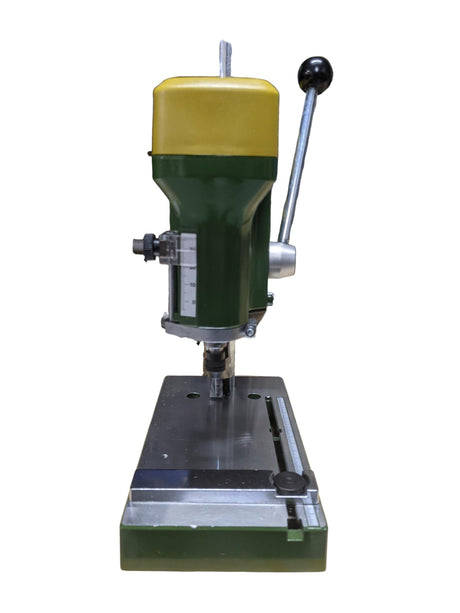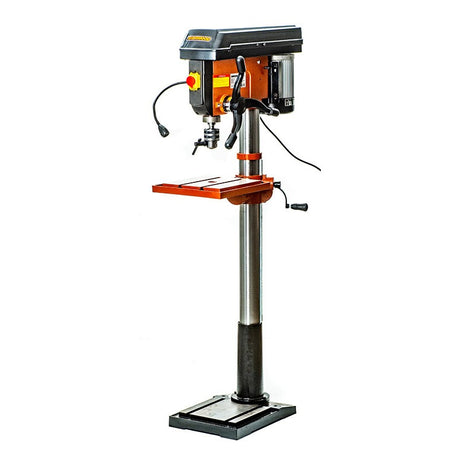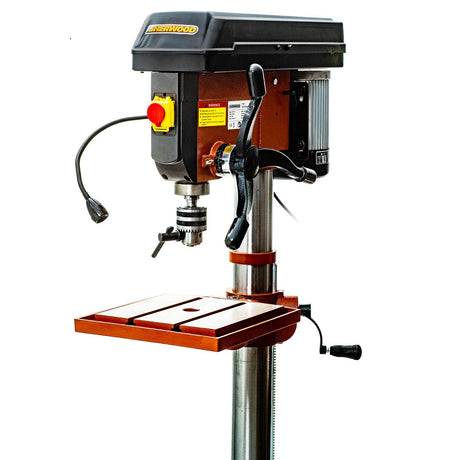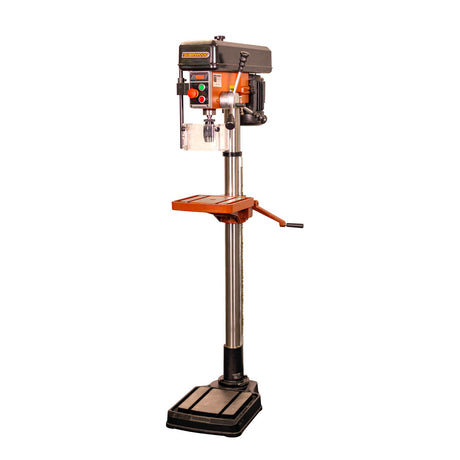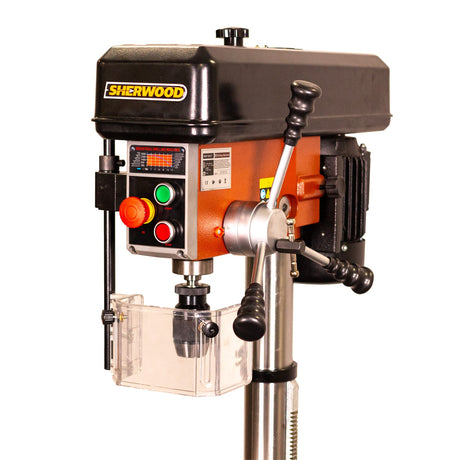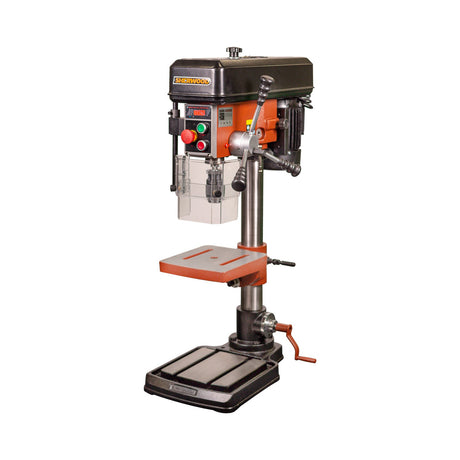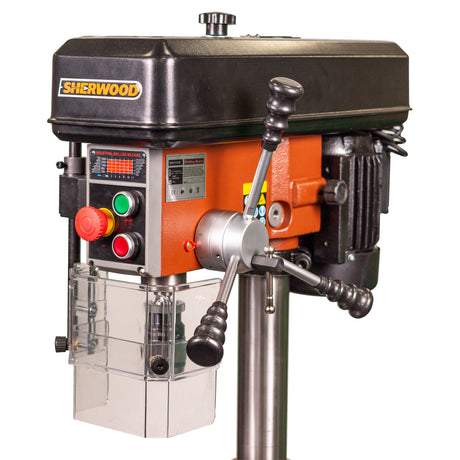Sherwood
Sherwood Pedestal Drill Press 750W Floor Standing
$649.00Unit price /UnavailableIn stockSherwood
Sherwood EVS Benchtop Drill Press 750W Variable Speed
$1,299.00Unit price /UnavailableIn stockSherwood
Sherwood Variable Speed Pedestal Drill Press 750W Floor Standing Keyless Chuck
$999.00Unit price /UnavailableIn stockSherwood
Sherwood EVS Pedestal Drill Press 1500W Variable Speed Floor Standing
$2,299.00Unit price /UnavailableIn stockSherwood
Sherwood Pedestal Drill Press 1500W Floor Standing
$1,199.00Unit price /UnavailableIn stockSherwood
Sherwood EVS Pedestal Drill Press 1100W Variable Speed Floor Standing
$1,799.00Unit price /UnavailableIn stockSherwood
Sherwood Pedestal Drill Press 1125W Floor Standing
$1,099.00Unit price /UnavailableIn stockSherwood
Sherwood Precision Pedestal Drill Press 550W Floor Standing
$1,199.00$1,499.00Unit price /UnavailableIn stock
Drill Presses for Accurate and Repeatable Woodworking
Drill presses are indispensable machines for woodworkers who require clean, precise holes at consistent depths and angles. Whether you're creating dowel joints, drilling for hardware installation, or performing repetitive hole drilling, a drill press delivers unmatched stability and control compared to handheld drilling. These machines provide adjustability in speed, depth, and positioning—key factors in achieving professional results in joinery and furniture making.
One of the main advantages of a drill press is its ability to hold the workpiece and drill bit steady throughout the operation. This results in straighter holes, reduced tear-out, and improved accuracy, especially when working with hardwoods or engineered timber products. Many drill presses also feature tilting tables and depth stops, which allow for angled drilling and consistent depth control, making them highly versatile for advanced woodworking applications.
Drill presses are available in both bench-top and floor-standing models, catering to workshops of all sizes. Benchtop models are ideal for smaller spaces or light-duty tasks, while floor-standing presses offer greater power, capacity, and functionality for more demanding work. When paired with the right bits and jigs, a drill press can be adapted for use in mortising, sanding, and even light metalwork—making it one of the most versatile machines in the shop.
For anyone looking to improve drilling precision, enhance safety, and increase productivity, investing in a quality drill press is a game-changer. Whether you're a hobbyist building cabinets at home or a professional running a full-time workshop, a drill press will help you drill cleaner holes, more efficiently and with far less margin for error.
FAQs
What is the main benefit of using a drill press over a handheld drill?
A drill press offers superior accuracy, stability, and repeatability. It allows for consistent drilling at specific angles and depths, which is difficult to achieve with handheld drills.
What’s the difference between a benchtop and floor-standing drill press?
Benchtop drill presses are compact and suitable for lighter tasks or smaller workspaces, while floor-standing models provide more power, deeper drilling capacity, and are better suited to heavy-duty or professional use.
Can a drill press be used for angled drilling?
Yes, most drill presses come with a tilting table that allows you to drill at various angles. This feature is useful for tasks like creating angled dowel holes or joinery setups.
What types of drill bits can be used in a drill press?
Drill presses accept a wide variety of bits, including brad point, Forstner, spade, twist, and hole saws. Choosing the right bit depends on the material and the type of hole required.
Can a drill press be used for mortising?
Yes, with the appropriate mortising attachment or jig, a drill press can be used to create square or rectangular mortises. However, a dedicated mortiser is better for high-volume work.
How do I choose the right speed setting on a drill press?
Use higher speeds for smaller bits and softer materials, and lower speeds for larger bits or harder woods. Most drill presses allow speed adjustment via a pulley system or variable speed motor.
Is it safe to use a drill press for metal as well as wood?
Yes, many drill presses can drill through metal, but you'll need the appropriate bit, slower speeds, and secure clamping to prevent movement. Always wear eye protection and follow safety guidelines.
What maintenance does a drill press require?
Keep the chuck and quill clean, check belt tension regularly, lubricate moving parts, and ensure all bolts and components are tight. Proper maintenance ensures smooth operation and extends the life of the machine.
Can I use a drill press for sanding?
Yes, sanding drums and sleeves can be mounted in a drill press for vertical sanding applications. Use low speeds and take care to keep the workpiece moving to avoid burning the material.

